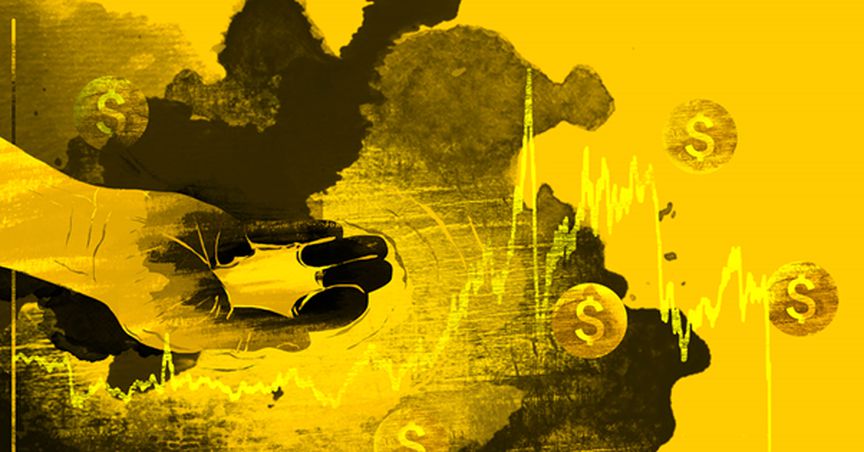Highlights
- WTI 1-month futures traded at US$68.15, falling more than US$10 a barrel.
- Crude oil futures dwindled to 2-month lows recording a decline of more than US$10 a barrel on Friday.
- In the latest move, the coordinated effort by the US, China, India, Japan, the UK and South Korea have decided to increase the oil supplies utilising their vast strategic petroleum reserves (SPR).
Crude oil futures slumped to 2-month lows after the new COVID-19 variant spooked investors and added to the existing concerns relating to a possible supply glut in the oil markets. The new variant has been termed Omicron.
Read Here: Can release of strategic reserves help tame crude oil prices?
ICE Brent crude oil 1-month futures fell below the US$80 a bbl milestone market to close at US$72.72 a barrel on Friday. Similarly, the WTI 1-month futures also traded in red, declining over ~13.06% against the previous close, to trade at US$68.15 at the end of the trading session.
The arrival of the new variant, Omicron, has heightened the fears of re-implementation of pandemic related restrictions. The latest drop is the largest since April 2020 and may be a distress signal for the oil-focused economies.
Oil importers to release SPRs to balance supply disruptions

Image source: © Rizami | Megapixl.com
The oil focussed economies, prominently a member of the OPEC+, have been cutting back on the supplies to maintain the supply-demand balance since the April 2020 fall. It is feared that there could be a supply surplus in the first quarter of 2022.
Also Read: Will the release of strategic crude reserves solve the demand-supply conundrum in oil market?
While the supply cut might have been profitable for these oil-exporting nations, the impressive recovery in oil prices has begun to put a dent in the energy budgets of many oil-importing nations. While the major oil consuming nations can not regulate the demand without hurting their own economies, they can certainly control the supply side.
In a latest move, the coordinated effort by the US, China, India, Japan, the UK and South Korea have decided to increase the oil supplies utilising their vast strategic petroleum reserves (SPR). The US plans to release about 50 million barrels from its SPRs.
Must Read: Oil steadies as investors questioned SPR effectiveness
IEA blames artificial tightness for high prices
Last week, Fatih Birol, the International Energy Agency executive director, said that the artificial tightness in energy markets has failed to restrict the price rally. Crude oil has surged over ~50% in 2021, with the prices hitting multi-year highs. He also added that the existing ~6 million tonnes of spare production capacity with the OPEC+ members.
Suggested Read: Crude oil climbs up on indication that OPEC+ could reassess output
Bottom line
Crude oil prices have tumbled for the fifth consecutive week. The new variant of coronavirus may lead to the re-implementation of pandemic related restrictions which may disrupt the oil demand recovery. Further, the release of SPRs may push the oil prices downward in the upcoming weeks.




